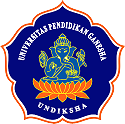Pengembangan Bimbingan Berbasis E-Konseling Untuk Mengurangi Prokrastinasi Akademik
DOI:
https://doi.org/10.23887/jurnal_bk.v7i1.1230Keywords:
e-konseling, behavioral, prokastinasi akademikAbstract
This study aims to develop, test the content validity, practicality of the guidebook and determine the effectiveness of the e-counseling-based guidance book with behavioral counseling theory and positive reinforcement techniques to reduce academic procrastination in students of SMP Negeri 6 Singaraja. The development procedure uses the 4D model proposed by Thiagarajan. The data in this study were collected using an academic procrastination scale which includes aspects including: 1) fear of mistakes, 2) fear of success, 3) fear of defeat, 4) fear of separation and intimacy, fear of separation and fear of intimacy). . The sample in this study were 7 students who had high academic procrastination behavior. The data analysis technique used is data analysis of the product content of the guidebook, the practicality test of the guidebook and the test of the effectiveness of the guidebook. The results showed that: 1) The assessment of the guidebook involving 3 Undiksha FIP lecturers and 2 BK teachers at SMP 6 Singaraja got the results of CVR = 22 and CVI = 0.98, 2) Practicality Test Guide involving 10 BK teachers from SMP Negeri 1, SMP Negeri 2 and SMP 6 Singaraja, the results obtained were 90.62% in the Very Practical category. 3) The effectiveness test that has been carried out using 7 students, the significance price of the pre-test score and the post-test score of 0.42 and 0.09, the significance price is 0.05. Suggestions for future researchers, there is a need for further development research on e-counseling-based guidance guidebooks for old aspects that can be changed to the latest aspects so that they are in accordance with the circumstances and development of junior high school students. Recommendations to other researchers using self-management techniques.
References
Asyari, N. F., & Maharani, C. A. (2019). Penggunaan Konseling Sebaya untuk Mengurangi
Kecenderungan Perilaku Prokrastinasi Akademik The Use ofPeer Counseling t o Reduce The
Students ’ Academic Procrastination Behavior Tendency.
Aini, Z., & Heni, R. (2018). Pentingnya Bimbingan Dan Konseling Untuk Mengurangi Prokrastinasi
Akademik Siswa. At-Taujih : Bimbingan Dan Konseling Islam, 1(2), 62–78.
https://doi.org/10.22373/taujih.v1i2.7202
Ananda, N. Y., & Mastuti, E. (2013). Pengaruh Perfeksionisme Terhadap Prokrastinasi Akademik pada
Siswa Program Akselerasi. Jurnal PsikologiPendidikan Dan Perkembangan, 2(3), 226–231.
Asmuni. (2020). Jurnal Paedagogy : Jurnal Paedagogy : IkanJurnal Paedagogy: JurnalPenelitian Dan
Pengembangan Pendidik, 7(4), 281–288. https://e- journal.undikma.ac.id/index.php/pedagogy
Bangun, Nurita Br dan Saragih, Abdul Hasan. (2015). Pengembangan Media Web Bimbingan Konseling.
Jurnal Teknologi Informasi & komunikasi dalam pendidikan. Vol. 2, No. 1, Juni 2015, p-ISSn:
-4983; e-ISSN: 2407-7488
Candra, U., Wibowo, M. E., & Setyowani, N. (2014). Faktor – Faktor Penyebab Prokrastinasi Akademik
pada Siswa Kelas XI SMA Negeri Kabupaten Temanggung. Indonesian Journal of Guidance and
Counseling, 3(3), 66–72.
Dantes, N. (2017). Desain Eksperimen dan Analisis Data. Depok: Rajawali Press.Dantes, N. (2017).
Evaluasi dan Assesmen Pembelajaran. Bk FIP Undiksha.
Dharsana , I Ketut , (2014). Lampiran RPBK Seri 1 Bimbingan Klasikal. Siungaraja:BK FIP Undiksha.
Gading, I. K. (2014). Keefektifan Pelatihan Kendali Diri Untuk Mereduksi PerilakuProkrastinasi
Akademik. Seminar Nasional Riset Inovatif,
https://eproceeding.undiksha.ac.id/index.php/senari/article/view/493
Jatikusumo, M. R. (2018). Tingkat prokrastinasi akademik mahasiswa. Studi Deskriptif Pada Mahasiswa
Program Studi Bimbingan Dan KonselingUniversitas Sanata Dharma Yogyakarta Angkatan
, 101.
Laswhe. (1975). A Quantitative Approach To Content Validity. PersonnelPsychology, 28, 563-
https://doi.org/10.3412/jsb.16.926
Maiti, & Bidinger. (1981). Teori Behavioristik. Journal of Chemical Information and Modeling, 53(9),1689–
Mardhiyyah, R. W., & Indriyani, F. (2018). Pendekatan Konseling Behavioral UntukMengurangi Perilaku
Prokrastinasi Pada Siswa SMA. Fokus Ikip Siliwangi, 1(4), 159–167.
Munawaroh, M., Alhadi, S., & Saputra, W. (2017). Tingkat Prokrastinasi AkademikSiswa Sekolah Menengah
Pertama Muhammadiyah 9 Yogyakarta. Jurnal Kajian Bimbingan Dan Konseling, 2(1), 26–31.
https://doi.org/10.17977/um001v2i12017p026
Muhamad Asrori, Metode dan Aplikasi hal. 109
Naraswari, I., & Dantes, N, Suranata, K. (2020). Pengembangan Buku Panduan Konseling Cognitive Behavior
Untk Meningkatkan Self Esteem Siswa SMA:Studi Analisis Validitas Teoretik. Indonesian Journal of …, 9(1).
https://journal.unnes.ac.id/sju/index.php/jbk/article/view/38806
Peneliian, M., & Pengembangan, D. A. N. (n.d.). Metode penelitian danpengembangan research & development.
Ramadhan, R. P., & Winata, H. (2016). Prokrastinasi Akademik Menurunkan PrestasiBelajar Siswa. Jurnal
Pendidikan Manajemen Perkantoran, 1(1), 154. https://doi.org/10.17509/jpm.v1i1.3260
Rokhman, M. K., Sucipto, & Masturi. (2019). Mengatasi Prokrastinasi Akademik Melalui Behavioristik Dengan
Teknik Behavior Contract Konseling. JurnalPrakarsa Paedagogia, 2, 1–10.





